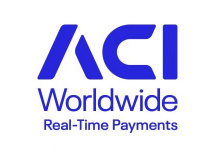Payment Orchestration: The future of Retail Payments is Local

- Mark Patrick, Global Head of Payments at CellPoint Digital
- 07.10.2021 01:00 pm #payment
The pandemic has irreversibly changed the retail customer journey, with more consumers than ever before shopping online and global web traffic increasing by 27% YoY. As a result, merchants have an unprecedented opportunity to scale cross-border, building relationships with and serving customers in different territories. Doing so, however, can place stress on legacy payment systems designed for domestic use, or lead to expensive rates demanded by international Payment Service Providers (PSPs). With that in mind, how can merchants scale internationally with a flexible payments ecosystem to match? The answer, surprisingly, might lie in going local.
The historic approach to cross-border payments
Until now, merchants looking to expand cross-border have had one of two options when building out their payments ecosystem. Brands looking to transact across different countries have the option of working with an international PSP for all of their acquiring needs. This can help reduce the time and effort needed to manage a complex payments ecosystem, but will likely also incur high costs in the form of sub-optimal transaction rates, and doesn’t allow for any back-up options in the event of failed payments. Working with a single PSP also limits the payment methods and currencies the merchant can offer, creating friction for the end customer.
Alternatively, merchants can build out their own payments ecosystem - comprised of various PSPs - in-house, with recent figures suggesting that over half (57%) are already working with more than one processor. Doing so will allow the merchant to create multiple relationships with several PSPs ‘on-the-ground’ in their country of choice, protecting them to a certain degree from payment rejection, and offering some element of control over transaction costs. Manually developing and maintaining a complex, international payments ecosystem in-house, however, is extremely time consuming, and can cause severe delays for agile merchants looking to move into new markets.
The benefits of going local for the end-customer
Working with several local acquirers over one international player is the future for ecommerce retailers, not just to protect their own bottom lines, but to deliver a more frictionless payment experience for their customers. As a rule, customers want to pay with their local currency, using a familiar method, both of which frequently change on a country-by-country basis. Partnering with local acquirers and PSPs will allow merchants to plug into the local ecosystem, not only offering preferred currencies and payment methods, but also utilising the experience of domestic partners to help enhance their payments journey.
Payment orchestration; unlocking local partnerships
Payment Orchestration Platforms allow merchants to master complex payment needs whilst keeping things simple. By integrating directly with local acquirers and PSPs, Payment Orchestration Platforms enable merchants to quickly and efficiently roll-out complicated payment ecosystems in new markets at a fraction of the time and cost of integrating directly. The platform can then orchestrate every transaction end-to-end, resulting in a more fluid, frictionless payment journey.
In practice, this means allowing customers to pay how they want, in the currency of their choice, regardless of location. For merchants, payment orchestration can simplify back-end processes, reduce operational costs and protect them from failed payments, as well as the negative customer experiences that go alongside them. Furthermore, having access to multiple PSPs means that any declined transaction will be re-routed to the next acquirer, ultimately reducing failed transactions and the cart abandonments that are likely to follow.
International opportunity, local strategy
The opportunity for merchants to scale internationally has never been greater, but they must prioritise their payments experience if they’re to protect conversions and ultimately build long lasting relationships with consumers in new markets. Through payment orchestration, merchants can quickly integrate with several local providers to allow customers to pay how they want, whilst simultaneously simplifying their backend operations to reduce costs and save time. Only by embracing a robust local strategy will merchants be able to offer a truly seamless global payments experience.

























